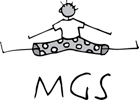Positional plagiocephaly (play-gee-o-kef-a-lee) describes the flattened shape of a baby’s head.
Also known as ‘flat head syndrome’, it can affect the back or side of the skull and sometimes the shape of the ears, forehead and face. It does not affect the brain.
Positional plagiocephaly usually develops in the first months of life if baby has a preference for looking one way or tilting their head to one side. Sometimes this preference was present at birth and can due to tight packaging in utero. If the preference persists the skull will flatten which can lead to shortening of the muscles in the neck.
Sometimes a baby will be born with a ‘knot’ in their neck muscle which makes it harder to turn their heads. This is called a torticollis and a positional plagiocephaly may develop as a result.
Babies who spend a lot of their time on their backs are at increased risk of developing a flat head
What can be done?
Play time
Provide lots of opportunities for playtime on baby’s tummy. This should always be awake and supervised. By starting as soon as you bring your baby home not only will you be helping your baby to move, you will be reducing the risks of developing a flat head.
Start with small amounts of time and gradually build up their tolerance.
Placing baby down on their side to play.
Vary the way you carry your baby – over your forearm on their tummy or side, over different shoulders, use age appropriate slings.
Sleeping
Babies should be put to sleep on their backs – https://rednose.com.au/section/safe-sleeping – however turning their head to the right and left when sleeping can help reduce the chances of a flat spot developing. Changing the position of the cot in baby’s room or alternating the ends which you place baby down to sleep will also encourage looking in all directions.
Physiotherapy
If you are concerned your baby has a plagiocephaly a review by a paediatric physiotherapist, your Early Childhood Centre or GP for an assessment is important. A paediatric physiotherapist can give your baby exercises and stretches as well as help with play ideas to improve tolerance to tummy time and promote gross motor development.
